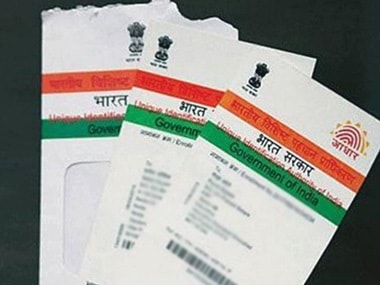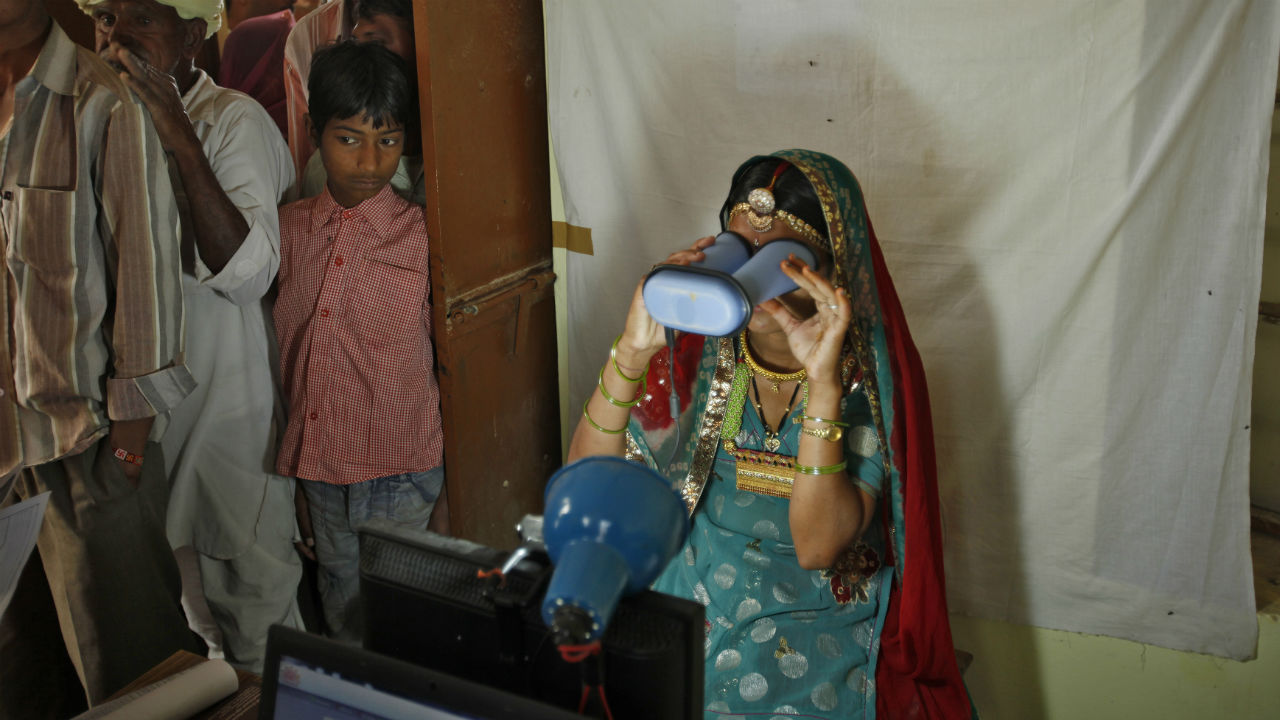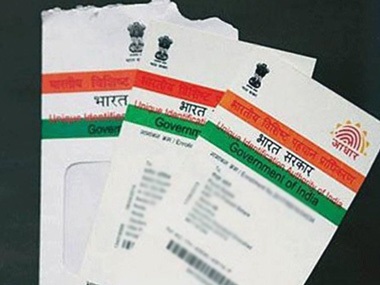On Day 17 of the Aadhaar hearing on 14 March, senior counsel KV Vishwanath continued his arguments for the petitioners. The validity of Section 59 as a validating provision of the Aadhaar Act, the de facto mandatory nature of Aadhaar, and the arbitrary and disproportionate collection and storage of data, in violation of privacy, were among the issues raised. The petitioners argued that the **Aadhaar Act** should be judged, not based on its objects, but based on the impact it had on fundamental rights. [caption id=“attachment_4331399” align=“alignleft” width=“380”]  Representational image. CNN-News18[/caption] The validity of Section 59 as a validating provision Senior counsel KV Vishwanath commenced his first argument on Section 59 of the Aadhaar Act, the section that grants validity to all the acts of the government prior to the passing of the Aadhaar Act in 2016. Aadhaar enrollments and usage, it must be remembered, had commenced in 2009 under an executive order. The Bench here stated that the section does not grant retrospective validity to the acts of the government, but instead deems them to have been done after the passing of the Aadhaar Act, from 2016 onwards. The petitioners, here, questioned if it was possible to have such a provision? It was argued that the entire Aadhaar Act had been drafted on the assumption that privacy was not a fundamental right. The drafting had taken place before the nine-bench verdict in the Puttaswamy judgment, due to which there was no balancing of privacy interests. Even if Section 59 is valid, it will thus still be violative of the constitutional rights to equality and life and liberty. The validating clause should remove the illegality The petitioners then cited Delhi Cloth Mills v. State of Rajasthan, arguing that a validating law must remove the cause of the illegality of the acts in question. In the case of Aadhaar, the illegality was the absence of a law. Section 59, thus, should have deemed Aadhaar to be valid from 2009 in order to be valid. Section 59, instead, deemed the acts of the government prior to 2016 to be a legal consequence, which was not valid. In addition, the acts done prior to 2016, were without informed consent or any other such procedural safeguards, which is a key compliance issue. Even if Section 59 is a valid validating provision, it could not declare compliance with such safeguards for the infringement of privacy, when in fact there was none. Indirect coercion due to de facto mandatory nature of Aadhaar The next argument of the petitioners was that even though the Aadhaar Act was framed as a voluntary scheme, in fact, it was made mandatory due to the various notifications issued under Sections 7 and 57. The result was that people were forced to enrol with Aadhaar and part with their identity information in order to obtain their statutory entitlement. Terming this as ‘indirect coercion’, this led to a barter of constitutional rights. Removing the statutory entitlements from people who refuse to part with their personal information results in the creation of an unconstitutional condition. This, it was argued, violates the right to equality. Data with State v. Non-State actors The petitioners then questioned the repeated argument that when people are willing to share their information with private actors like Google or Facebook, but not to the State. For this, they pointed to the difference between a State and a Non-State actor, and the corresponding power they had over the individual. Limits on powers to introduce compulsions under law Next, they argued that the State itself has limits on its power to impose compulsions by law on the people. They argued that the state could impose such compulsions under three circumstances — as punishment for breaking the law, to aid law enforcement, and to prevent potential law-breaking. The compulsion imposed by the State, in this case, it was argued, was neither proportionate nor reasonable. The recent judgment on euthanasia was also discussed in this context, which stated that biometric information, such as DNA samples, should not be collected as a matter of course, and could only be ordered when an ‘eminent need’ was present. [caption id=“attachment_4339161” align=“alignnone” width=“1280”]  The petitioners argued that there was no judicial or independent oversight to the collection of biometric data during enrolment, which includes collection via private parties. Reuters.[/caption] Collection of identity information is arbitrary The petitioners went on to argue that subjecting a majority of the population to a probabilistic method of authentication was a matter of grave concern. There is a presumption of criminality which is inherent in the collection of identity information, which is disproportionate and arbitrary. Moreover, there was no judicial or independent oversight to the collection of biometric data during enrolment, which includes collection via private parties. Centralised data storage violates privacy rights The petitioners also argued that the centralised storage of data in the CIDR was disproportionate and violative of privacy. People were also not given the right to access their own biometric data, which violates Articles 19 and 21, and also violates the state’s obligation to provide people with unimpeded access to their data. The Aadhaar Act, they argued, lacked purpose limitation, which is also a key privacy principle, making it an ‘open-ended general purpose vehicle’. 37 and 49 percent exclusion in Rajasthan and Jharkhand The petitioners then argued on the unconstitutionality of Section 7. This, they argued, resulted in the exclusion of the most marginalised section of society. Rates of authentication failures were cited, 37 percent in Rajasthan and 49 percent in Jharkhand. In view of this, it was argued that the validity of an Act was to be judged not by its object, but by the effect it had on the fundamental rights of the people. The right to food, they argued, is a fundamental right. Mandatory authentication to receive this right to food is a violation of the people’s rights to choose how to identify themselves. Lastly, the petitioners argued that the State had failed to justify the infringement of the right to life and liberty via Aadhaar. Further, it had failed to show how Aadhaar had resulted in savings. The savings cited, they argued, were made on many incorrect assumptions, including the cases where Aadhaar were not given or linked were counted**,** and it was assumed that leakages happened largely due to identity fraud. The hearings will continue on 15 March. Sources of arguments: Livetweeting of the hearings by Prasanna S and SFLC.in, and Written Submissions of the counsel on LiveLaw. The author is lawyer and author specialising in technology laws. She is also a certified privacy professional. Read our past coverage of the on-going Aadhaar Supreme court hearing: **Why SC needs to look into technical evidence of Aadhaar’s surveillance capabilities** **Lack of governmental ownership of CIDR’s source code can have serious consequences** Will State give citizens rights only if they agree to be **tracked forever, asks lawyer Shyam Divan** Coalition for Aadhaar: A collective of private companies wants to ensure that Aadhaar ID and related services continue to be offered Petitioners argue on centralisation of data and challenge Aadhaar’s claims on savings **Petitioners argue for a voluntary ID card system that does not collect user data** **Petitioners argue that receipt of govt benefits cannot be at the cost of compromising fundamental rights** **Aadhaar is architecturally unconstitutional, argue the petitioners** **Petitioners argue that Aadhaar violates dignity by objectifying and depersonalizing an individual** Petitioners seek compensation for starvation deaths and extension of March 31st deadline **Section 7 exception** in **Supreme Court’s interim order greatly affects people’s constitutional rights**
Senior counsel KV Vishwanath commenced his first argument on Section 59 that grants validity to all the acts of the government prior to the passing of the Aadhaar Act in 2016
Advertisement
End of Article


)

)
)
)
)
)
)
)
)



